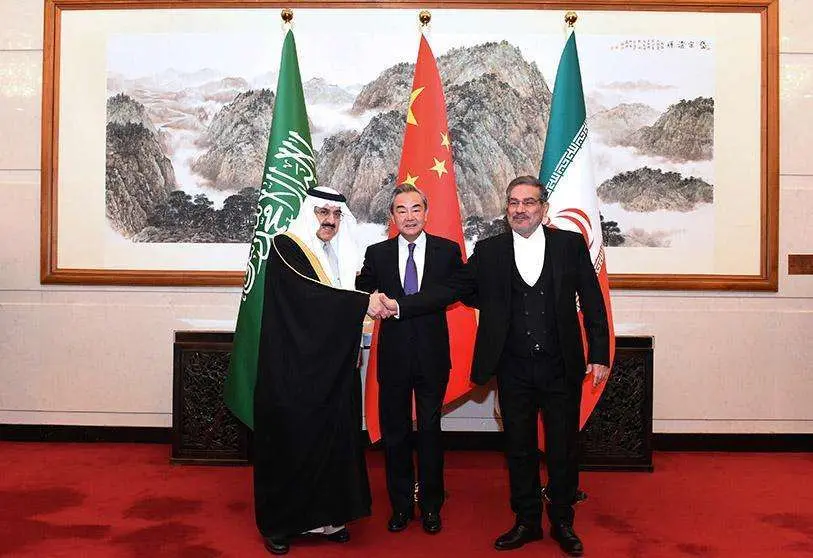Saudi Arabia and Iran make progress in their bilateral relations and set next meeting of their Foreign Ministers

After almost seven years of diplomatic rupture, the Saudis and Iranians surprised with the re-establishment of their relations. The new understanding between them, sponsored by a China that is showing itself to be a conciliatory power - not only in this case, but also between Russia and Ukraine - has brought about a new context that reconfigures partnerships in the Gulf and hopes to bring with it the tranquillity that for so many years has been conspicuous by its absence in the Middle East. And the truth is that, after re-establishing relations, the predisposition of Saudi Arabia and Iran seems to be unbeatable, at least in these first weeks.
Economic agreements are a major attraction for both countries, as the Saudi Finance Minister, Mohammed Al-Jadaan, has already stated, saying that they could be reached "quickly". However, bilateral relations must be established gradually, and the idea is to hold a face-to-face meeting during the current month of Ramadan to bring the two countries closer together. This was confirmed by the Iranian Foreign Minister, Hossein Amir Abdullahian, after a telephone conversation with his Saudi counterpart, Faisal bin Farhan. In addition to discussing the forthcoming meeting, they discussed some of the ideas that should form the basis for the restoration of diplomatic relations.

The resumption of ties is no simple matter. It should be recalled that Saudi Arabia and Iran, in addition to the regional competition between them, have been at loggerheads over Yemen for years. Riyadh has been backing Hadi's once internationally recognised government and Iran has been supporting the Shiite rebels. The hope is that this rapprochement between the powers most involved in what began as a civil war can bring some peace of mind to a society experiencing the greatest humanitarian catastrophe since the Second World War, according to the United Nations. Hence, optimism is growing in the country and a large part of its hopes are pinned on the good work of these ties.
Moreover, the idea is that this move will be the first, but not the only one. As reported by the Saudi television channel Al-Ekhbariya, 'talks are underway with Syrian officials to resume consular services', meaning that Riyadh sees Bashar al-Assad's government as the next with which to re-establish its still broken diplomatic relations. Tehran's proximity to Syria is key to this rapprochement, as is Russia's mediation. Indeed, the Wall Street Journal points to the recent meeting between Vladimir Putin and Bashar al-Assad in Moscow, where they may have held the first talks on the deal with Saudi Arabia.

There are many sides to this possible restoration of ties between Riyadh and Damascus. Several countries have exerted - and continue to exert - pressure on the Syrian government to sit down and talk with Riyadh. In addition to Russia and Iran, others such as Jordan and Oman are pushing for a resumption of ties that they believe should be very positive for the region as a whole. However, there are some limitations in this case, such as Saudi funding for militias operating on Syrian territory or security on the Syrian border, where the smuggling of captagon, commonly known as the 'jihadists' drug', is a major problem.

What is clear is that the Middle East is undergoing a restructuring in which not only the countries of the region themselves are immersed. This is why an analysis of this reorganisation cannot be understood without the intentions of China and Russia, which are strengthening their position in the Gulf. With China continuously postulating itself as a mediator, and Russia sponsoring the diplomatic reunion between Syria and Saudi Arabia, the Middle East is immersed in a clear Eastern influence that does not seem to be going unnoticed in the West, as the United States has already assured with the announcement of the re-establishment of Saudi-Iranian relations. Despite this, the reality is that, for the moment, the East is entering a new phase and the support it is finding is from China and Russia.










